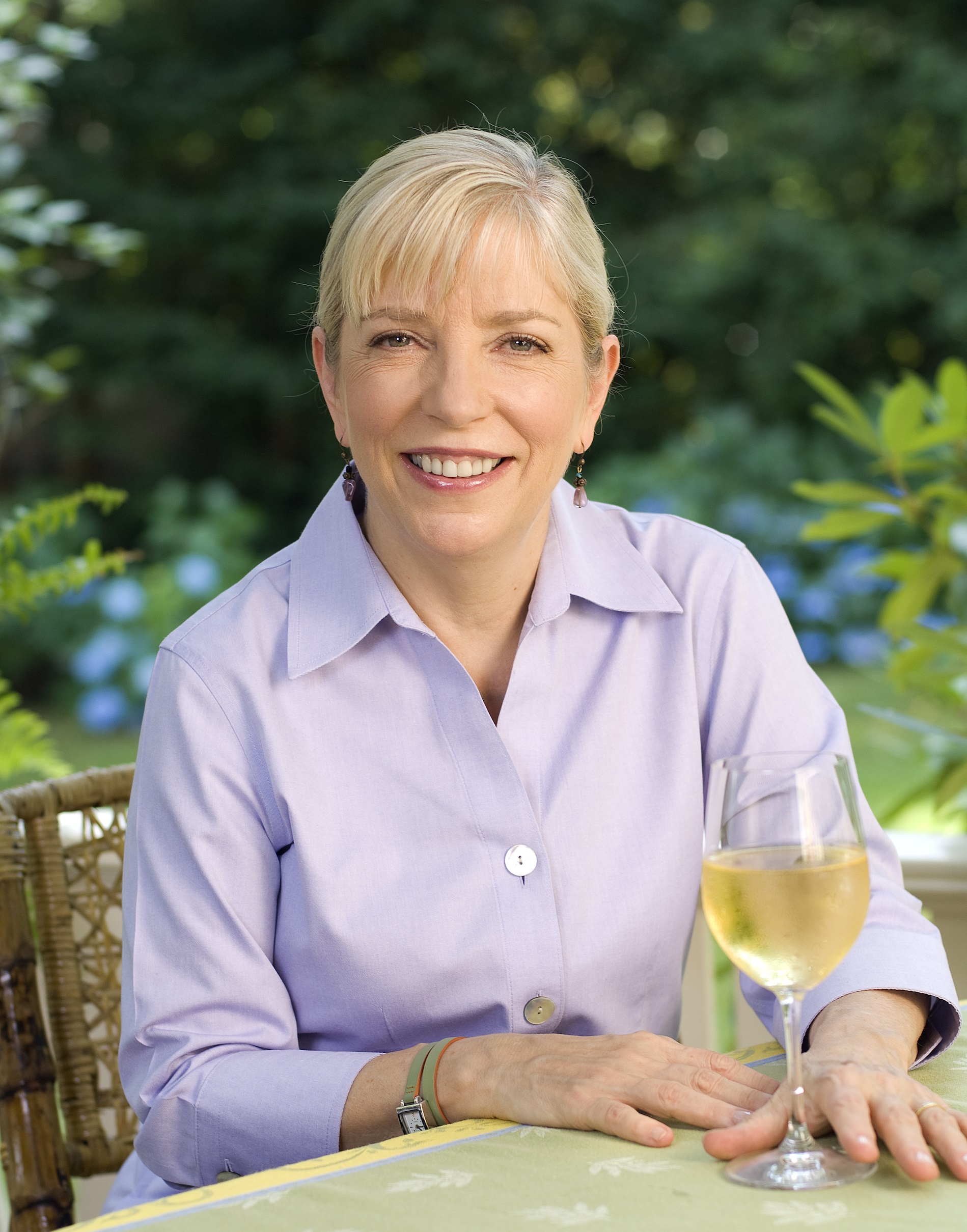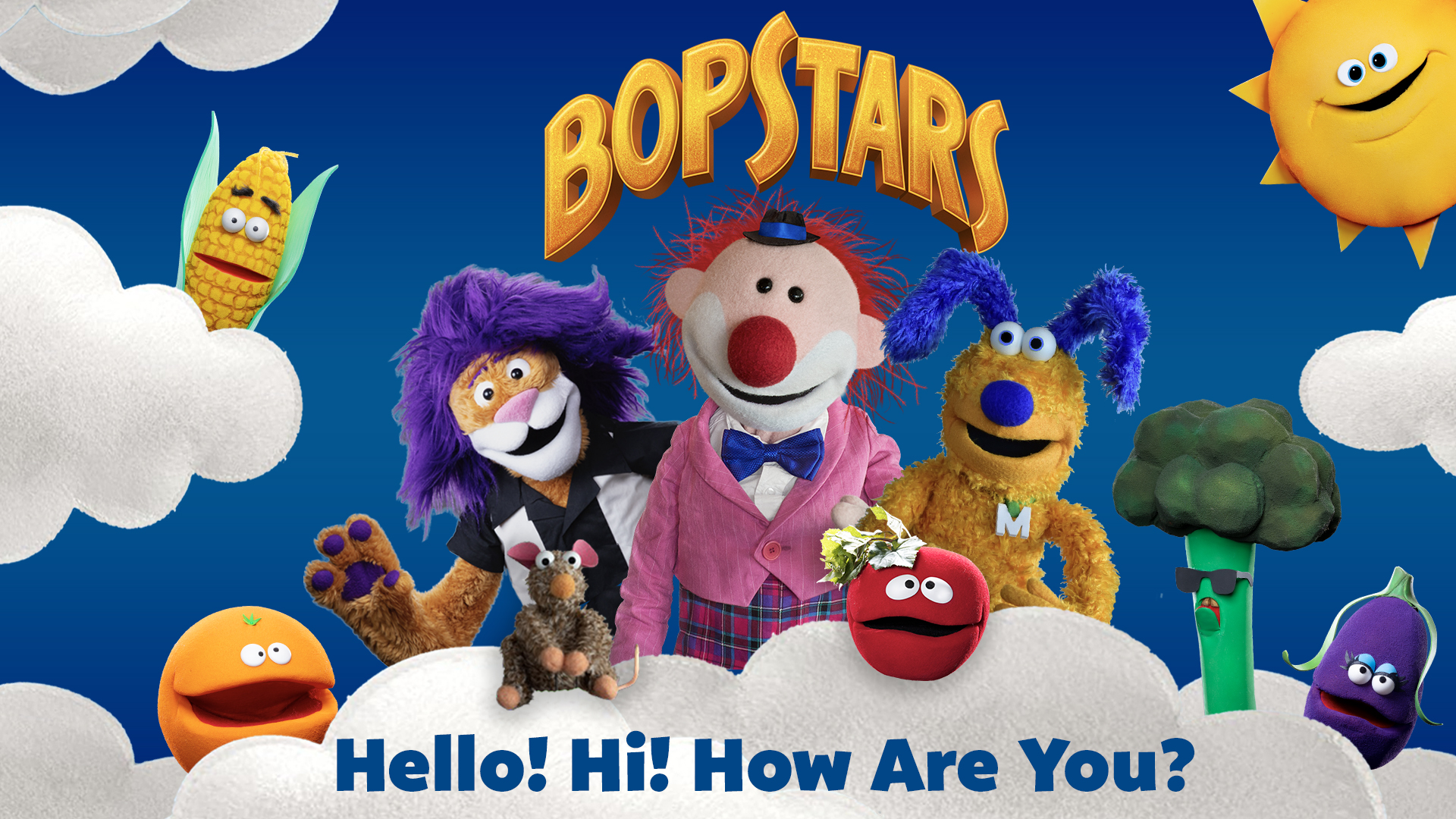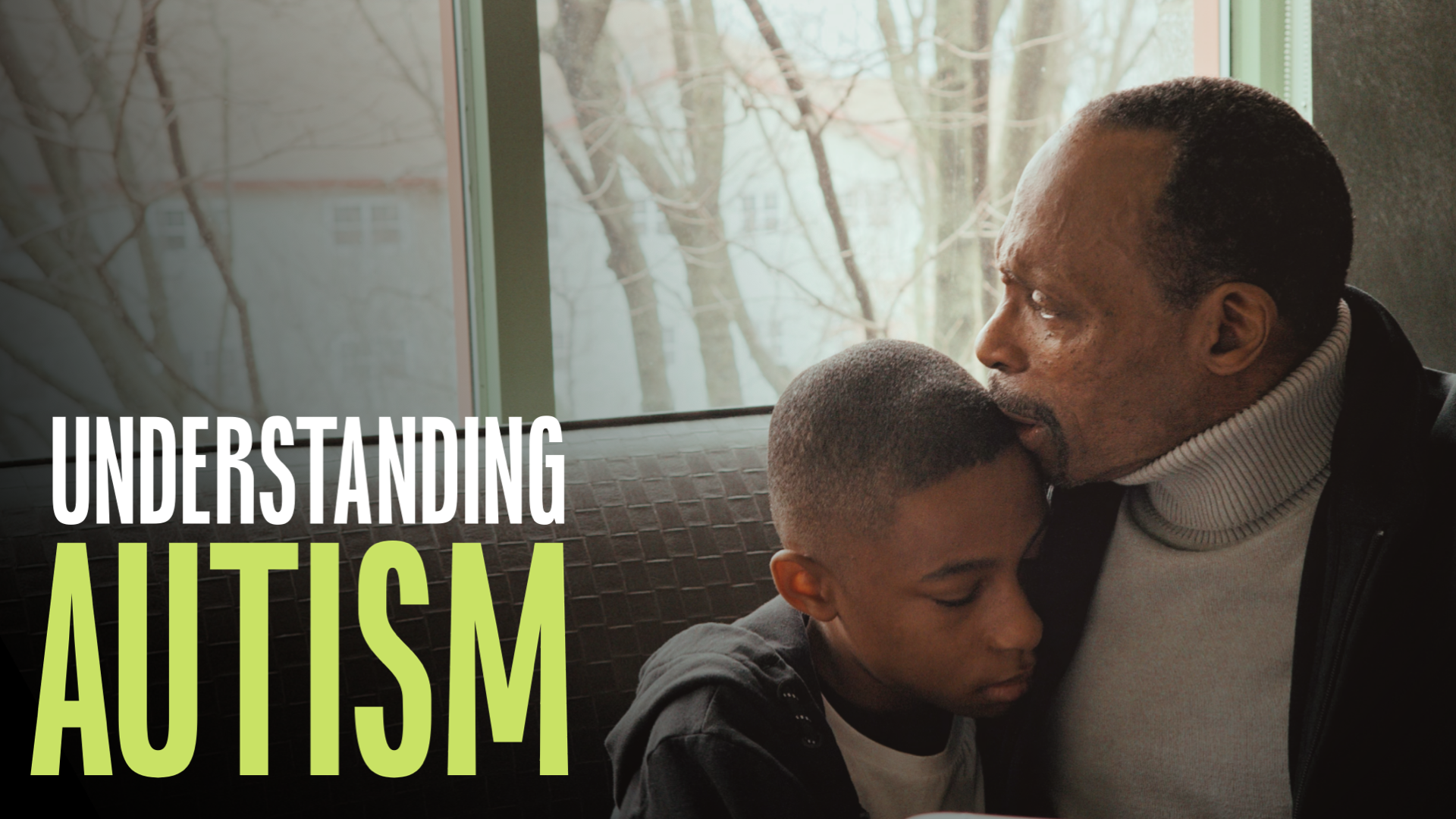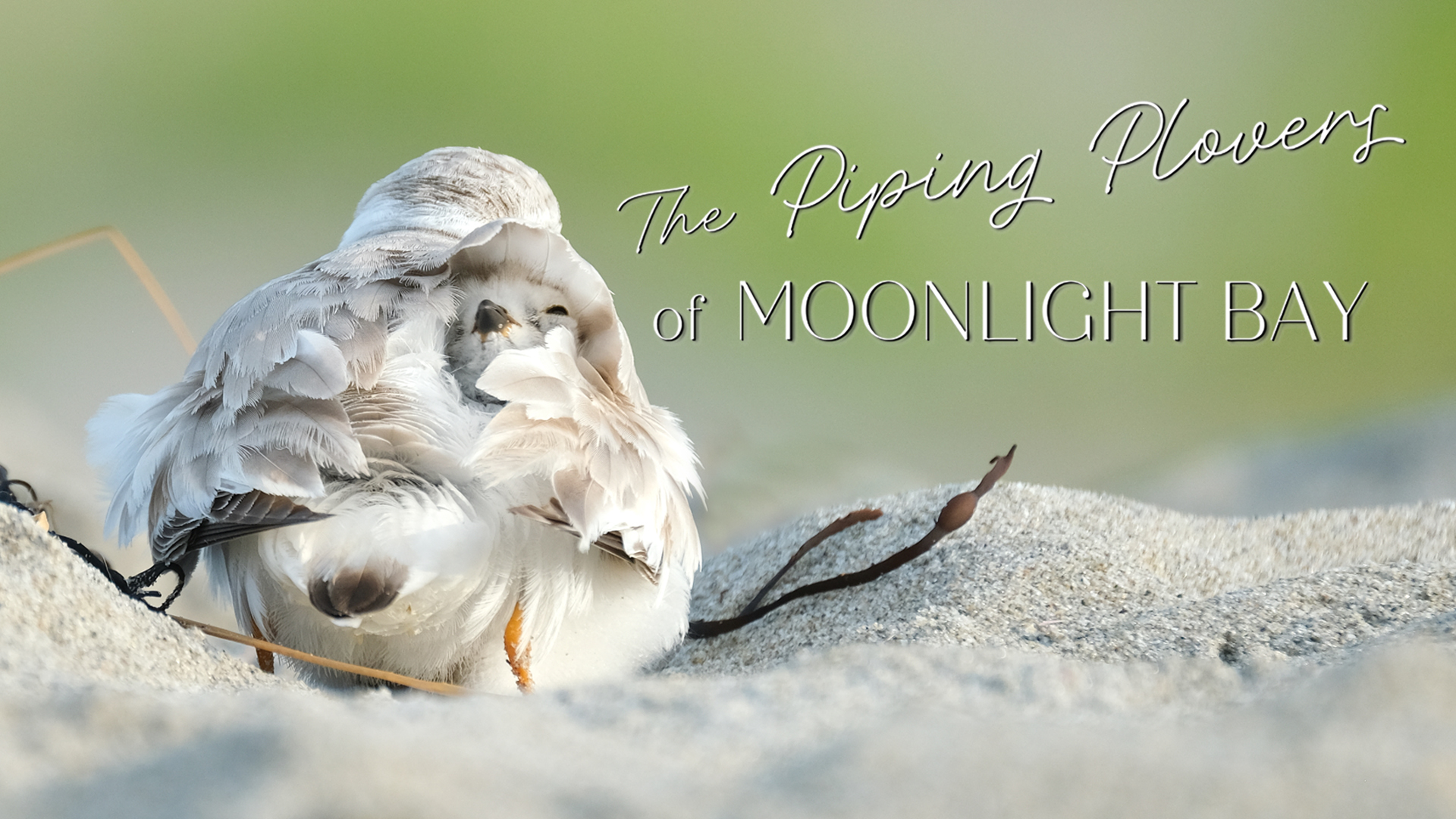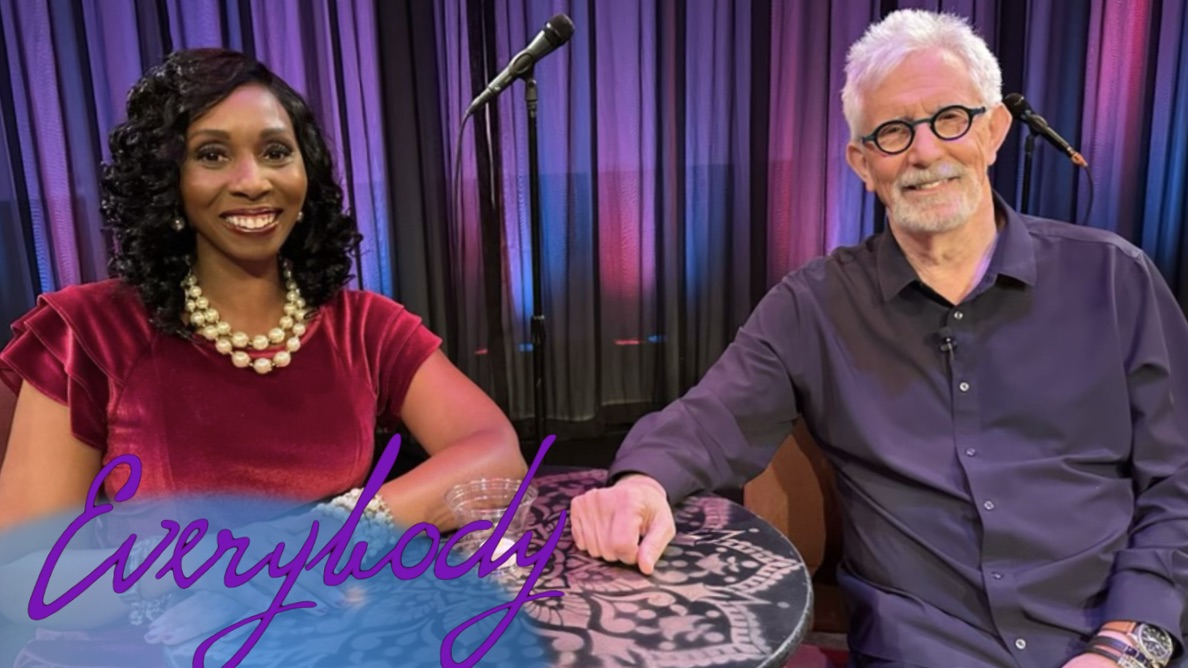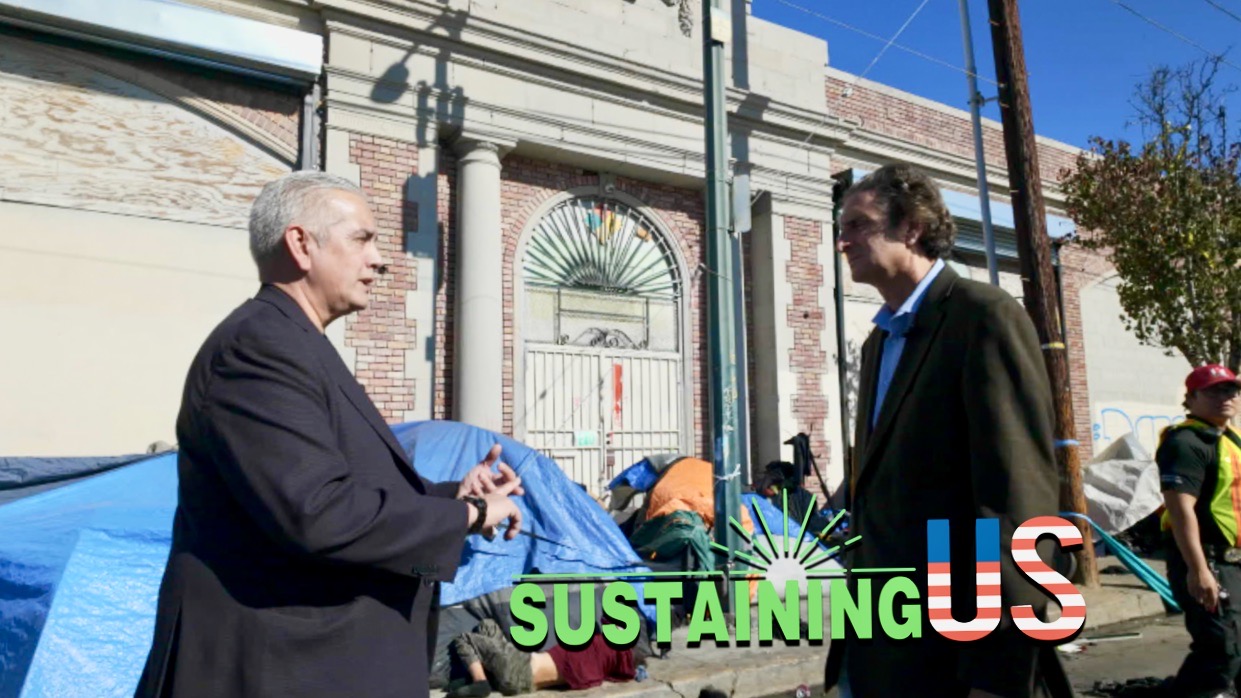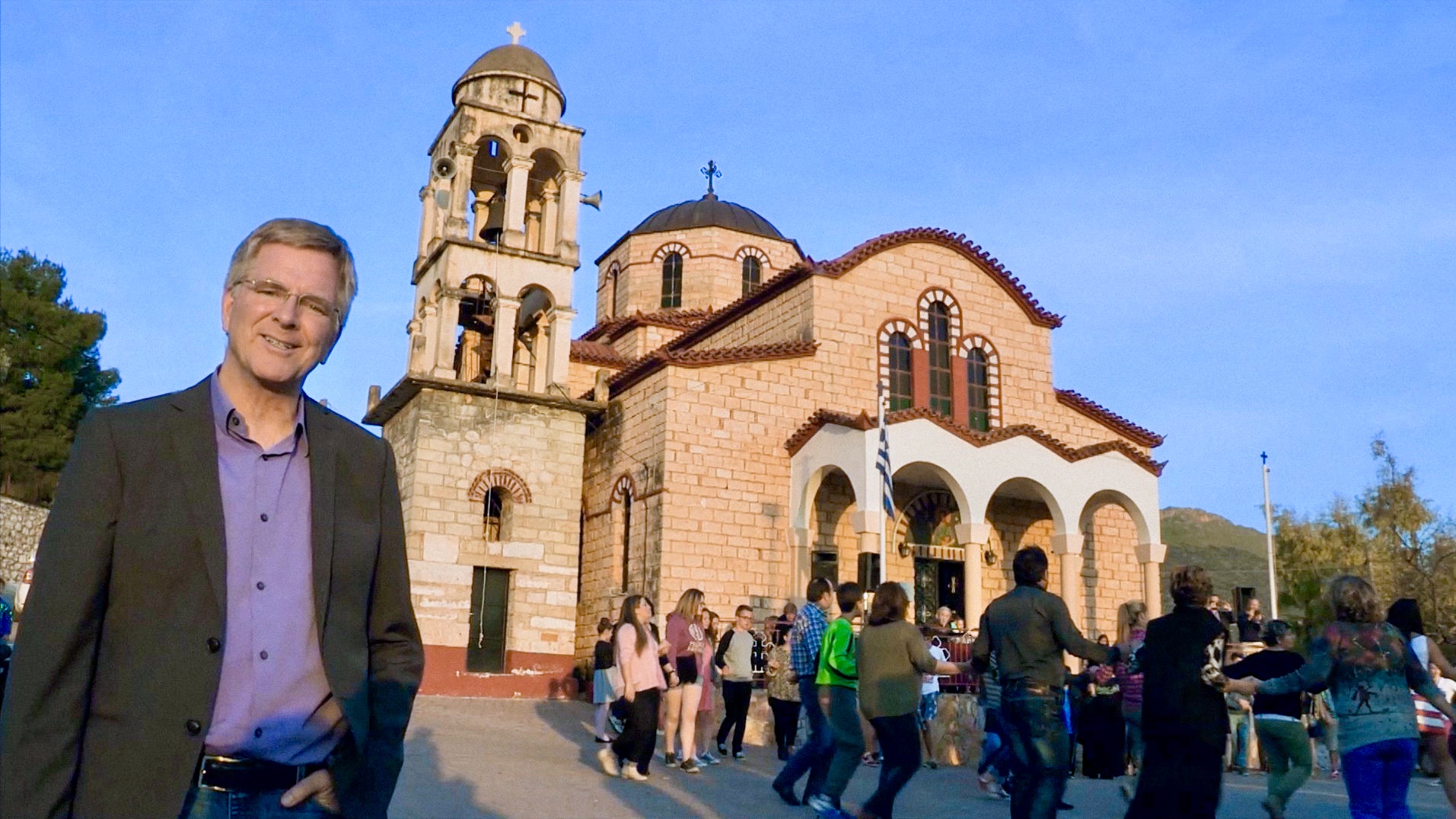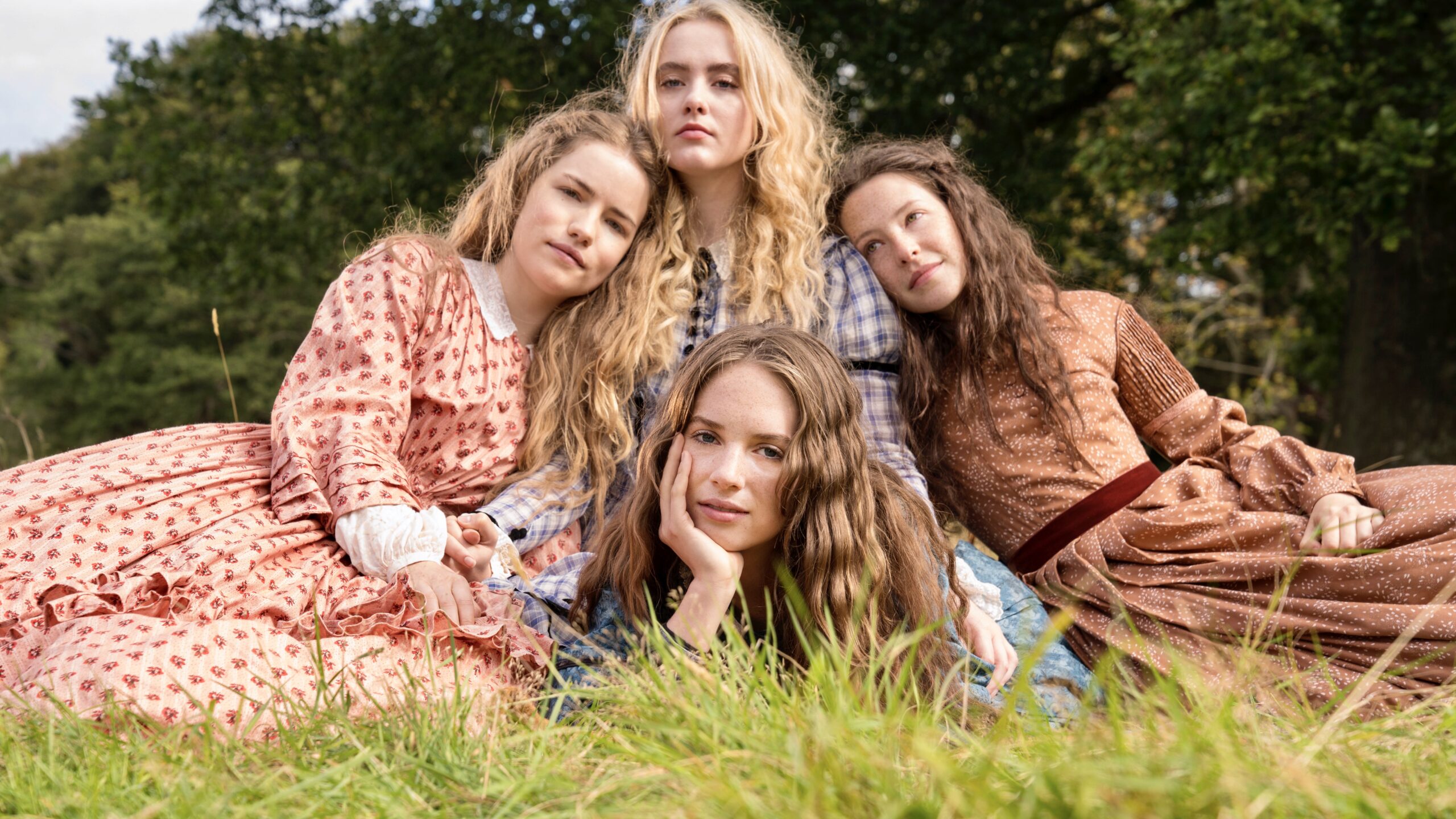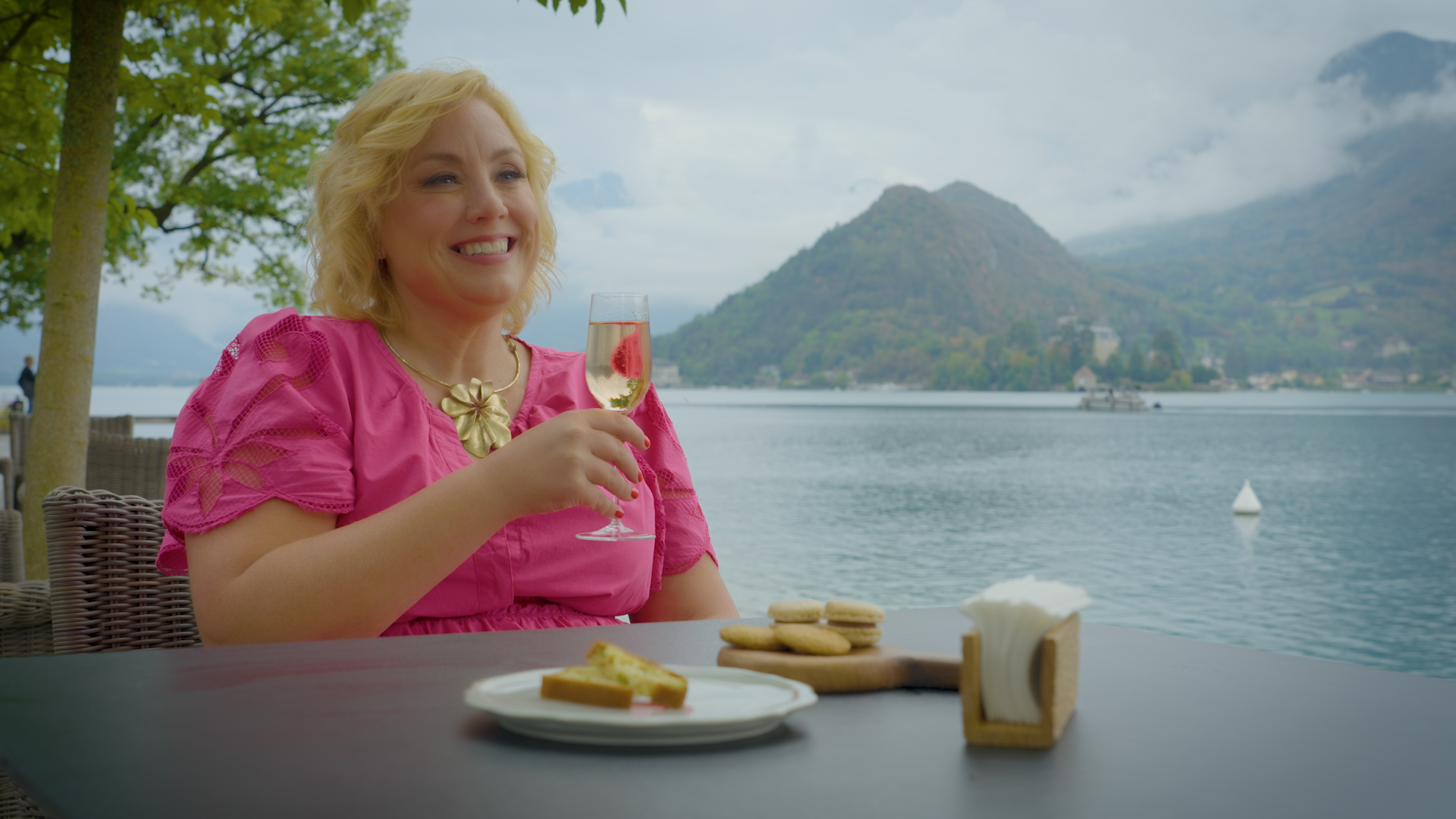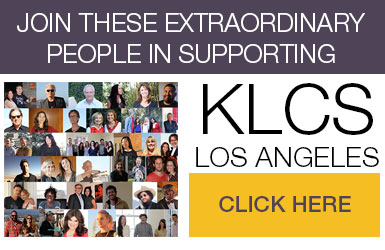Although she’s now on PBS and CreateTV, Sara Moulton is known as one of the chefs that helped establish the Food Network in its early days. But fans may not know that she’s also the only chef with her own PBS cooking show now who started out working for the grand dame who started it all – Julia Child. That makes Sara one of Julia’s few, or only on-air legacy. Since the metaphorical torch was passed on to her, it’s something Sara takes seriously as she enjoys teaching people how to cook, just as her former boss and predecessor did for PBS audiences.
What’s the theme or aim of your show each season?
It depends on the sponsors, we never take a sponsor that I don’t love. Sometimes we have to travel for the sponsor. One of our sponsors now is Oceana Cruise lines. They’re a classy cruise line. Jacques Pepin has been very involved with them for years and they have terrific food, and they have a fantastic cooking school on board. I feel so blessed that we all hooked up, but we end up traveling with them. We’ve now done two seasons. The new season hasn’t rolled out yet. So that has expanded our horizons.
I really believe it’s so important – it’s called “Sara’s Weeknight Meals,” so it has to be something you make on a weekend night. The trouble is, sometimes you find yourself in a place like Valencia, as we did last fall, with a chef who competes in paella competitions. Valencia is the capital of paella, that’s where paella was invented. So even though Paella is not exactly a weeknight meal, here we had this wonderful opportunity to get a one on one tutorial from this wonderful chef about how to make paella. I did get some pushback about it and about some of the other dishes we did on there, because we made homemade pasta. In Italy, that is a weeknight meal. This season we shot some stuff in Miami and Key West, trying to emphasize it’s got to be weeknight meals. I couldn’t pass up that opportunity for make paella (laughs), it was so exciting and it was fun for me to get a one on one lesson that everybody else got to watch. But I’m back to – it has to be a weeknight meal, meaning it cannot be something that takes forever. We have done a Sunday supper where you might take a little more time, but then I might talk about how to use the leftovers, so that you can turn it into another meal during the weeknights. That is really my focus – is how to get dinner on the table during the weeknights and tips and tricks and strategies and what might not seem to be a weeknight meal for us is certainly a weeknight meal for somebody else. Every nationality, say, an Indian chef – she may use a lot of spices, but if you have them in-house, then it’s no big deal to make a quick meal. And that’s her idea of a weeknight meal. She’s going to use all those spices because that’s what Indian chefs do. And I think it’s really fun because we’ve become such an international culture because we can. We have access to so much more information because of the Internet than we used to and even at the supermarket. When I first started cooking with Gourmet, which was in 1984, when we talked about sesame oil we had to say “toasted sesame oil” because there’s a clear sesame oil, which had no flavor, and then have an asterisk next to it saying, “available in specialty food shops.” Now you can find it in your market, because there’s the “International” aisle. My parents have a farmhouse in Massachusetts, we go to Rindge, New Hampshire and I can find all sorts of ingredients in the international aisle, so the world has changed and I believe there’s a bigger interest than ever in cooking and using new ingredients, and being inventive, trying new things. So what used to be a weeknight meal, my training is French and New England because my grandmother was a huge influence, I can’t limit that anymore. I need to incorporate Korean, Italian, Thai and Mexican ingredients because people, I believe want more excitement. I still try to keep it quick and easy and supermarket-friendly, because I think that family meals is the glue that keeps the family together. It’s sort of my religion. I grew up with family meal, my husband grew up with family meal, and we insisted on it with our kids, even when they were squirmy and young. Sit at the table and everybody gets to talk about how their day went and I feel that by giving the kids that opportunity, you’re showing them respect and also teaching them how to communicate. The other part of it is – if you attempt to do your best, if you start with fresh ingredients then everybody’s going to be healthier. It’s a no-brainer.
Do you have a favorite dish on the show?
Oftentimes it’s when I have guest. A lot of times, my favorite food is something I did not make, because when I make it, I’m tasting it constantly. So I love it when I have guests on and they make something that didn’t occur to me or is very different, and that is what makes me excited. One of my all time favorite things, this is alcohol (laughs), I had Amanda Cohen on, she has a restaurant Dirt Candy, and she made this amazing lemonade where she roasted the lemons. It’s got bourbon in it, and it was so interesting. That was really exciting. What I love about my show, I like doing it by myself because I was trained as a professional chef, I worked in restaurants for seven years, 80 hours a week, and then had to leave. I just thought I was taking a short break because I wanted to have kids and then I realized they needed me more than when they were newborns, so I never went back to restaurants. But then I joined Gourmet and suddenly I was in the world of – I work all day! I come home and have to get dinner on the table. So I was just like everybody else, I couldn’t do fancy schmancy chef stuff, I had to use what was at hand. And I’d completely shifted gears and I’ve been focused on that ever since. And when I did my shows on the Food Network, that was what I focused on, so I continue to focus on that. I like doing that on my show, but I also love having on somebody with a different expertise and learning from them.
What made you originally want to cook on TV?
I didn’t, I thought that was tacky, only people who needed attention did that. Although I loved Julia Child, that was my first job behind the scenes on TV. I was working in Boston and someone I worked with had worked as a volunteer on Julia’s show and hooked me up with Julia and Julia hired me to work on her PBS show “Julia Child and More Company” and then the cookbook that was with it and that started a lifetime relationship. I met her when I was 28 and I did the last interview with her the year she died, for the Food Network. I did a special on her. I died and went to heaven, that was such a blessing. Opened so many doors, but that’s how I started working on TV – behind the scenes first with her show and then I moved to New York in 1981 and she started working at “Good Morning America,” and one night I wanted to have dinner and she said she had too much prep to do. She’d come down and do seven segments and I said, “Let me come help you for free.” And I did and then GMA hired me and eventually that morphed into a job where I was “executive chef” at GMA. For 10 years I did all the prep for all the chefs on GMA. That was really great. That was from ‘87 to ‘96 and I got to meet everybody who was anybody in the food world back then – Martin Yan (fellow KLCS Celeb Chef), Madhur Jaffrey, Wolfgang Puck, Emeril Lagasse. You name them, I worked with them. That was in the early days of food TV. I felt like I was very helpful to these people because I would hold their hand, I’d slip them a glass of wine at six in the morning, I’d rehearse them, and I loved doing it, but I never wanted to be in TV and then one day GMA put me on the air and it went pretty well. It helped that I was on with Joan and Charlie, and all the camera guys were cheering me on. But I never once had to look at the camera.
The Food Network was starting up it, it was 1993 and they knew I ran the kitchen at GMA, so they asked me if I wanted to run the kitchen at the Food Network. At that time I had a regular job at Gourmet with benefits, so I said, “I really can’t do that.” Then they said, “Would you like to be a food editor?” It was a desk job coming up with ideas. I said, “No, I’m a chef.” And they said, “Would you like to do some on air?” And because GMA put me on air once, it seemed to go well, I thought, “Well, why not?” So I tried out for a show called “How To Boil Water” and I was awful, so I thought, “Well, ok, who cares, I never wanted to be on TV anyway.” But they reached back out because they were so desperate in the early days of Food Network, they were all news people, not food people. They had no money to fly anybody in. They didn’t know who the players were. So they gave me another opportunity for “Chef Du Jour,” and I got media training and I was marginally better, but apparently much better than the other people who tried out because they ended up giving me a show called “Cooking Live,” so I ended up doing 1,500 shows for the Food Network. That’s how I ended up on TV.
So far everyone’s had a Julia Child story, you’ve had a lot, what are some of your favorite moments with her?
Some I can’t share because they’re x-rated, she would just say what’s on her mind, she was terribly refreshing. When it was the height of the food police saying that fat is bad for you, there was this whole period where fat is the devil and come to find out down the road that myth was financed by the sugar board with a couple Harvard doctors writing a report that said what the sugar board wanted them to. When they said you should eat no fat of any kind at any time, everybody reached for a box of Snackwells and ate the whole thing and got addicted to sugar. And I date that as the beginning of the obesity era. In the middle of this period, I went to the International Association of Culinary Professionals’ conference. The first year I was a member Julia bought me a membership because she thought it was an important group to belong to. I was at that in Philadelphia with Julia and I’m sitting next to her in this big ballroom with 1,000 plus people. The sponsor of the luncheon was the pork board, the “other white meat.” Somebody had just finished a tirade about how bad fat was and we shouldn’t eat any fat. They said, “Questions?” Julia raises her hand (laughs) and the speaker calls on Julia. Everybody knows who Julia is. “Julia?” Julia stands up, and she says (in Julia’s voice), “I just don’t understand what’s so terrible about butter-rrr. I just love butter-rrr.” I was just horrified, this was so ridiculously un-PC, I wanted to hide under the table. At the end of the day, Julia was right. Butter wasn’t the problem, it was sugar. Julia’s thing was “Everything in moderation including moderation.” She was really smart. There’s lots of funny stories, but that is the one where she just said what was on her mind. She knew she was being controversial, but she didn’t care, she thought they were full of shit and she was right.
You’re on weekdays on KLCS and on CreateTV. Do you get feedback that your show is a guilty pleasure in a noisy world?
It’s like, this is their escape, it’s a very stressful world we live in, this is a very calming thing to do, it’s like meditation. Even if they don’t cook, they just love to watch food shows. I think more the straight out cooking shows like what we do on public television, verses the heavy duty, I find them very stressful competition cooking shows. Yeah, I do hear that, that it makes them so happy. Particularly right now.
What’s the most frequent question you get?
“How do I keep my chicken from being so dry?” My specialty is getting dinner on the table during the workweek. Another one is, “How do you plan so that everything comes out hot and ready at the same time?” The coordination of cooking is challenging to a lot of people.
What’s your answer to both questions?
The one about chicken is – “Don’t overcook it, get a meat thermometer.” The trouble is – 80 percent of all chicken, including organic is contaminated, so you have to cook it to 165 degrees, or as we cheat in the food industry – to 160, then it gets to 165 with carry over cooking time. But, get yourself a meat thermometer and learn how to use it. And allow resting time. For years when I was on GMA, after I did behind the scenes, I was their on-air food editor for 10 years, Emeril got food correspondent, he was on every Friday. I was on six times a year, but I always did Thanksgiving and I believe that one of the reasons that people’s turkeys were so dry, it’s a crap shoot to cook a turkey. I’ve cooked a 16 pound turkey in three hours and also in four and a half hours, at the same temperature. It’s just one of the things you can’t really gauge. But, one of the things people don’t realize is just how important it is to let it rest. So I think that the reason people find their turkey uniformly so dry is because they take it out of the oven and they carve it immediately, and all the juices come streaming out and you have a dry turkey. So, just let it rest is the answer. And even with chicken that you might have slightly overcooked, if you let it rest, it will still be juicier than if you sliced into it right away.
The other one is, when you’re planning a meal, plan some things that you can cook ahead and then just pop back in the oven. If you’re going to do roasted vegetables, you start cooking at six, you want dinner on the table at quarter to seven. First thing, turn on the oven high, get your vegetables ready, throw them in the oven, get them done. Take them out, park them on the counter. Then, five minutes before you’re ready to serve dinner, pop them back in to reheat them. Pre-prep is a lot of it, and perhaps not worrying that everything be hot, that some things are just fine at room temperature. But I would want to address people’s individual’s meal. What are you making? What are the parts of your meal? You could do a pasta sauce ahead of time and then drop the pasta at the end.
Since you’ve started cooking on TV, the TV world has changed so much, what keeps it fun for you? You can tell that you enjoy your job.
It’s a little bit what you said before, I feel like food is a calm place for people. My mission – weeknight meals starting from scratch, it’s just much healthier, but dining around the dinner table is just much healthier. Doing food TV is good for the soul, cooking is good for the soul, that all makes me happy. It’s also discovering new ingredients or discovering new things. There’s so many more toys to play with than there used to be. There’s so many more ingredients. I love gadgets, as long as they’re useful. I don’t have useless gadgets. But finding things that really help to make your life better, or just seem to make something taste better. I love eggs and I used to hard boil them the way Julia did, which is to start them in cold water, bring them up to a boil, turn off the heat, cover them and leave them and drain them and put them in ice water. I discovered a new method, which is to steam them. In 2016 I found out. It’s a little amount of water and also I think they come out more tender than Julia’s method and easier to peel. But that sort of thing is what makes me happy. It’s a creative endeavor like anything else. First of all, I love to eat. That’s how I think I got into this to begin with. I’m always thinking about the next meal and I’m also excited about eating. But secondly, I love the process, and when you learn new things. It’s like being any kind of artist, I do believe that good cooks are artists, you get happy when you learn something new.
Do ever just pinch yourself you get to do this for a living and follow in those footsteps of educating people about cooking on TV?
Absolutely. I feel so blessed from every level. That my mom was such a great cook, that she passed that on to me, that she inspired me, that I met Julia Child and all sorts of doors opened, that I ended up on TV and I never wanted to be on TV, but once I started, I really liked it because I liked teaching. So, yes I feel that way all the time. And that I’ve passed that on to my children, they love to eat, they’re discerning eaters. I tested all my cookbooks here at home, so I make a throw away meal and they’ll say, “Mom, that needed more acid.” They all are well-trained. And it’s so much fun, and my husband is absolutely the same. He loves to eat, so I feel so blessed that we have that.
Are cooking show fans different when you go to different parts of the country when you meet them?
Yes. New York they’re all jaded, they’re like, “Oh you? So what.” Because they can see everybody here. Going back to 2002 when I did my first book tour and when I was still on the Food Network and sort of a big deal, events that I did in New York City that were just me in a little old bookstore never get the turnout that I would get say, in the the middle of the country, or the South. Nowhere near the same. If I did a Food Network event, they would show up because it was a whole bunch of us. So New Yorkers are jaded, they’re like, “Yawn.” And they don’t really cook, it’s so funny, they do takeout. And I discovered that when I did my live call-in show on the Food Network, how people cook in different parts of the country. And it was really fun to learn. I would say my take away, first I did the live call-in show and then I did a taped show for the remaining four years. But when I did the live call-in show, I took five calls a night and talked to people from around the country, and in that process I came to the conclusion that Southerners cook more, can more, candy more, bake more, dine more. They’re almost European. It’s wild. In the old-fashioned sense. It was really a revelation. Those were the people I spent more time talking to than anybody else, who had more knowledge just from doing it than anybody else.
When you’re in L.A., do you have any favorite places to dine or food shop at?
I haven’t been in L.A. in so long. I’ll tell you something about L.A. and me, is that the Food Network came to California later than anywhere else. So I’m not as well known, especially in L.A. I think it came to San Francisco first. Also it was three hours earlier. I was on at 7 o’clock for six years Monday through Friday and it would be 4 o’clock in California. So when I’d go on book tour, I’d never gotten the same response so I don’t get there as often to L.A. The most fun thing I did was when I was there on book tour in 2016, I’d become friends with the guy who is the marketing director and face of Melissa’s produce. He did a book tour event for me in L.A. because he brought all these food bloggers and influencers to me at their facility and I did a demo and that was really great, got a lot of wonderful press out of it. But I’ve not eaten there enough in recent years. When I was at Gourmet, we would go on trips to eat to get ideas and I remember coming to L.A. and eating at Wolfgang’s places and how much fun that was.
Is there anything you want to add about your TV show?
That we just really try to help empower the home cook to get a yummy dinner, a tasty dinner, a healthy dinner on the table every night of the work week. One of the things we love to do, the trouble is I have to be in the Tri-state area because finances are such a big issue with public television, is we’ve been trying to get real people on. I’ll take anybody. You don’t even have to have ever been on TV. What we did last season, Season 8, we put a call to action out anyone in the Tri-state area to come and cook with me and make their family’s iconic dish. It had to be a weeknight meal. We ended up with a Puerto Rican woman who lived south of Washington, but she wanted to come. She was an ex-CIA agent, I love that. She was a tiny woman, my size, short. And she made arroz con gandulles and it was just so much fun to have her on and talk about her family and how they made this. So we’re always looking for real people to come on, but the trouble is in California, we can’t bring somebody from California. We also did a segment which hopefully we’ll be taping more of called “Ask Sara” and that we do via Skype. So if anybody has any serious questions that they’d like to ask me on TV, they should certainly reach out directly to me at Sara@Saramoulton.com and let me know, because we are going to be shooting some more, because we’re going to be getting some money for season 9 and we’ll be doing some Ask Sara’s and it’ll be fun to have somebody from the West Coast. We shot a bunch related to a cruise in Miami and Key West, but were going to be shooting probably more in June or July in Connecticut, and it’s going to be airing in the fall.

